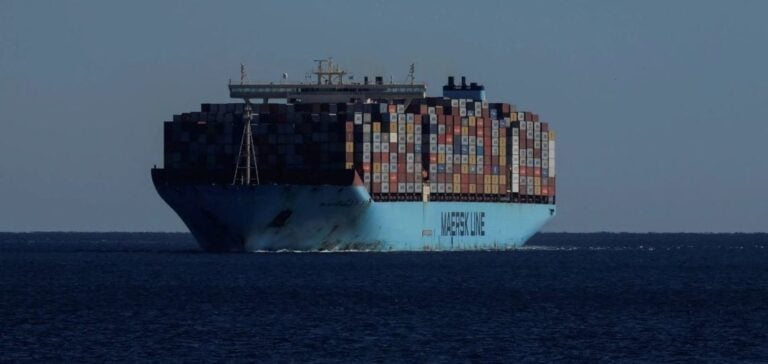A new maritime security incident occurred on December 27, when Houthi rebels claimed responsibility for a drone attack on a Maersk container ship, the *Santa Ursula*, as it sailed in the Arabian Sea near Socotra Island, off the coast of Yemen. According to the group’s spokesperson, Yahya Saree, the attack was in response to an alleged violation of a maritime blockade imposed on Palestinian ports by the Danish shipowner.
According to data from *S&P Global Commodities at Sea*, the vessel was en route to Oman after departing from the Spanish port of Algeciras. The ship’s Automatic Identification System (AIS) stopped transmitting its position around 11:40 PM GMT on December 25. Two days later, the vessel was located near the port of Salah in Oman. Maersk has yet to comment on the incident.
A Coordinated Escalation
The attack on the Maersk vessel coincided with a Houthi offensive targeting Israeli infrastructure. The rebel group claimed responsibility for launching a hypersonic missile at Israel’s Ben Gurion Airport. Yahya Saree described the series of attacks as retaliation for Israeli airstrikes on strategic infrastructure in Yemen, including the ports of Hodeida and Ras Isa.
According to statements from the Israel Defense Forces (IDF), the December 26 attack on Hodeida and Ras Isa caused significant damage, disabling the ports and other critical energy infrastructure. Reports indicated that multiple oil storage tanks were destroyed, severely impacting Yemen’s ability to import and store vital fuels.
Major Energy Impact
These recent events are part of a series of repeated attacks on Yemeni ports and energy infrastructure. In December, the ports of Hodeida and Ras Isa saw their fuel supply flows drop dramatically to less than 30,000 barrels per day (b/d), down from an average of 60,000–70,000 b/d in the preceding months.
The Ras Isa oil terminal, connected to the Masila, Marib, and Shabwa oil fields, was also targeted by Houthi forces. Producing between 7,000 and 10,000 b/d of light crude oil, these resources have been refined locally since the rebels destroyed the main export terminals at Bir Ali and Ash Shihr in 2022.
Worsening Humanitarian Crisis
The current tensions in the region are exacerbating an already critical humanitarian crisis. Yemeni ports, whether under Houthi control or struck by air raids, play a central role in the country’s energy and food supply chains. The situation continues to deteriorate, fueling concerns over maritime security in this strategic region, a crossroads of several global trade routes.






















